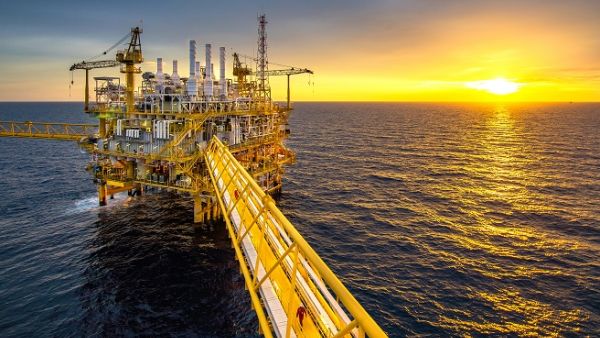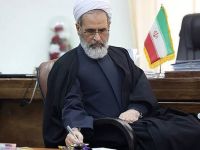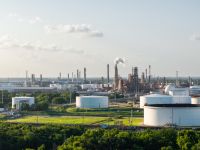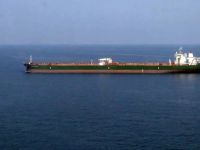The first phase of exploration for Lebanon’s potential offshore oil reserves is set to start this week, caretaker Energy Minister Cesar Abi Khalil said at a news conference Tuesday.
A plan by the three companies in the consortium that won the rights to run the first phase of exploration – France’s Total, Italy’s ENI and Russia’s Novatek – had been submitted and approved by the government, Abi Khalil said.
The news conference was held to address two developments, Abi Khalil added, pertaining to the exploration plans submitted by the companies and “the preparations for the second licensing round approved by the Cabinet” at the request of the Energy Ministry.
The approval is the first important milestone after the signing of the contracts, he said. The consortium had 60 days to submit its exploration plan and another 60 days was allotted for the Lebanese Petroleum Administration and the ministry to study and approve it.
Read More
Gold Bounces Back to $1,300/Oz as Oil Rally Runs out of Steam
Omani Crude Oil Price Rises 22 Percent Till April 2018
“We want to produce oil and gas without causing any harm to the environment and there is preparation for the adoption of logistics to serve oil activities in blocks 4 and 9,” Abi Khalil said.
The caretaker energy minister said that the first phase of exploration will begin this week in maritime blocks 4 and 9, and will last through 2019.
Two exploratory wells will be drilled in 2019, one in each of the blocks. Meanwhile, the companies will prepare the ground with further studies, gain necessary approvals and prepare an onshore services base.
The minister voiced his hope that a second licensing round would be carried out by the end of the year.
The explorations will take three years, with the possibility to extend for another two years.
Mona Sukkarieh, a political risk consultant with Middle East Strategic Perspectives, said that “with the start of the exploration phase, the nascent oil and gas sector in Lebanon will move from a phase of planning to an early phase of implementation.”
Walid Nasr, chairman of the Lebanese Petroleum Administration’s board of directors and head of its strategic planning department, said earlier this year that 2018 would be spent completing several crucial studies, including geological, technical and environmental research, in addition to administrative work relating to issuing permits and preparing the supply base ahead of drilling works, which are scheduled for 2019.
Explorations have found the possibility of a significant amount of oil and gas in the eastern Mediterranean. It is estimated that there could be some 100 trillion cubic feet of gas and 865 barrels of oil off the coast of Lebanon.
The regulation of Lebanon’s oil and gas sector is set by the Cabinet, the Energy Ministry, and the LPA.
Once it can tap into its potential offshore energy reserves, Lebanon plans on converting its oil-run power plants to natural gas, which would cut down on both pollution and the cost of electricity.
The country signed its first offshore oil and gas exploration and production agreement for two of Lebanon’s 10 offshore blocks on Feb. 9, 2018, with the consortium of the three companies.
Lebanon is in a dispute with Israel over maritime borders. The entire disputed maritime area is close to 856 square kilometers, and mediation by the United States is underway to find a solution to the dispute, or at least defuse tensions.
In Block 9 itself, 145-148 square kilometers are disputed, out of its 1,700 square kilometer area.
France’s Total has acknowledged the dispute, but played down the impact on its work. It has said that the target for drilling in Block 9 is in the northern part of the block, some 25 kilometers from the disputed area. In a statement to its website, the company says it is “fully aware of the Israeli-Lebanese border dispute” but that it covers “only a very limited area – less than 8 percent – of the block’s surface,” and adds, “[As] the main prospects are located more than 25 km from the disputed area, the consortium confirms that the exploration well on Block 9 will have no interference at all with any fields or prospects located south of the border area.”
Lebanon’s energy exploration plans might appear to be slow moving, but some experts see the incremental bidding and detailed studies of the sector as a good way to cautiously test a new system for a country that has yet to have an energy sector.
“This gradual bidding is good. There will soon be calls for a second licensing round. We need to test the system so that Lebanon is in a stronger position to negotiate with companies,” said energy expert Laury Haytayan, MENA regional program manager and senior officer at the Natural Resource Governance Institute. “What the ministry is doing is a good step. This is an important milestone for the public to know about. Everybody is looking at the sector,” she added.
By Brooke Anderson








